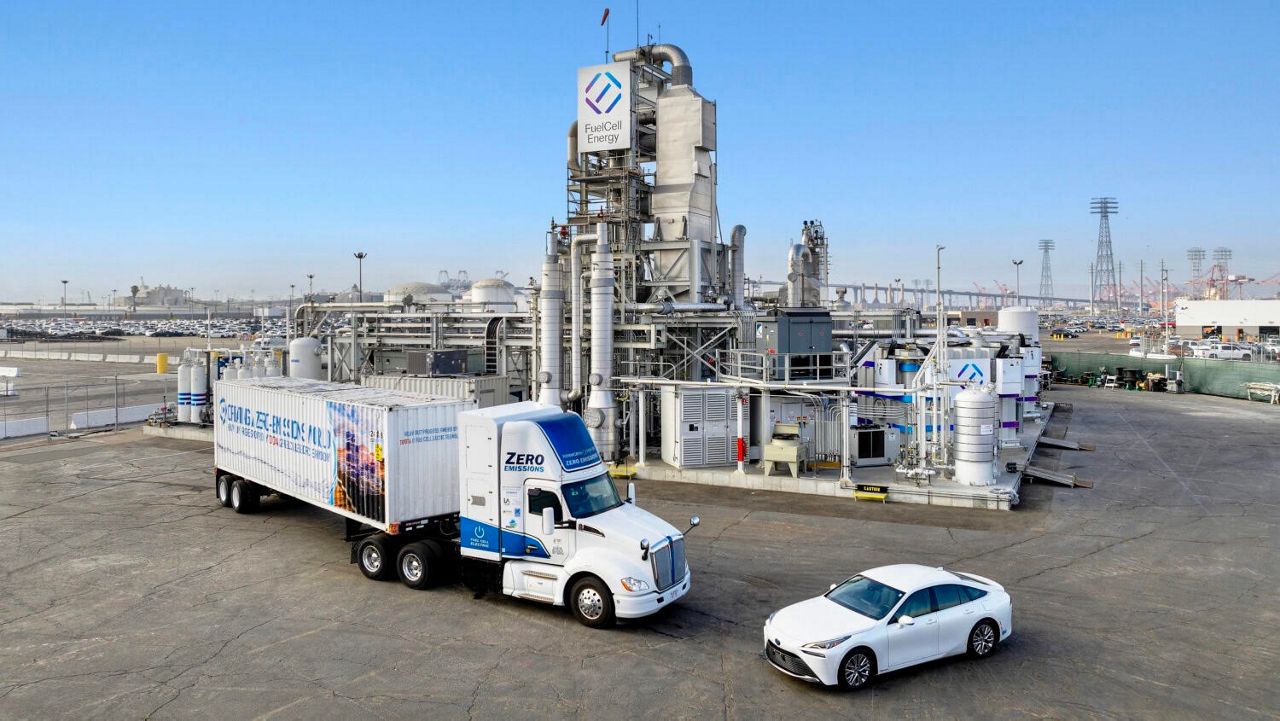A single facility that can produce renewable hydrogen, renewable electricity and clean water is set to begin operations at the Port of Long Beach.
A collaboration between the automaker Toyota and the clean technology company FuelCell Energy, the first-of-its-kind tri-gen facility will support Toyota’s port operations using energy produced on site.
“By utilizing only renewable hydrogen and electricity production, Toyota Logistic Services Long Beach will blaze a trail for our company,” Toyota Chief Administrative Officer Chris Reynolds said in a statement. “The great news is this real-world example can be duplicated in many parts of the globe.”
Owned and operated by FuelCell Energy, the system uses an electrochemical process to convert renewable biogas into electricity, hydrogen and water without combustion so that almost no air pollution is generated.
“Renewable hydrogen is an important fuel for the future of the Port of Long Beach and shipping industry,” Port of Long Beach CEO Mario Cordero said in a statement. “The renewable hydrogen generated by the tri-gen system that Toyota commissioned and similar projects is part of our multi-strategy approach to help fuel the transition of equipment like locomotives, harbor craft, cargo-handling equipment and trucks to zero emissions.”
The Port of Long Beach has a goal of zero-emissions terminal operations by 2030 and zero-emissions trucking by 2035 as part of its Clean Air Action Plan. The Port of Long Beach, together with the Port of LA, handle 40% of the cargo containers shipped in and out of the U.S. About 15,000 diesel-powered trucks travel through the two ports daily.
Using hydrogen produced by the tri-gen facility will reduce diesel consumption by more than 420,000 gallons per year, Toyota estimates.
Toyota says it will use the electricity to help process the 200,000 new Toyota and Lexus vehicles that are shipped through the port each year. Any excess electricity it does not use will be sold to the local utility, Southern California Edison.
Toyota will use the hydrogen to fuel light-duty fuel cell electric vehicles, including its Mirai, as well as larger trucks Toyota uses for logistics and long-haul transport.
The 1,400 gallons of water the system produces each day will be used to wash the cars that come through the port before they are delivered to customers. Toyota estimates the tri-gen water will save 500,000 gallons of fresh water per year.
As part of a 20-year purchase agreement, FuelCell Energy’s tri-gen system at the Port of Long Beach will supply Toyota with hydrogen, electricity and water through 2043.



